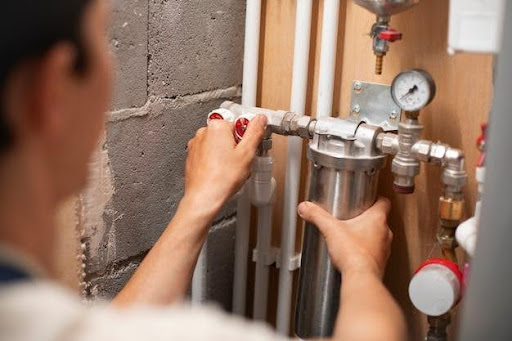Hot water systems are essential components of modern homes, providing comfort and convenience for daily activities. However, like any complex appliance, they can develop issues that require professional attention. Understanding when to call a residential electrician for your hot water system can save you from costly repairs and potential safety hazards. In this article, you will see five critical signs that indicate it’s time to seek professional help.
Hot Water Systems have Inconsistent Water Temperature
One of the most common issues with hot water systems is fluctuating water temperature. Persistent temperature variations may indicate an electrical issue, such as faulty wiring, thermostat problems, or heating element malfunction. Symptoms include sudden cold water, extreme hot water, delayed heating, and fluctuating temperatures. Residential electricians can diagnose and repair these issues safely.
Circuit Breaker Keeps Tripping
If your hot water system repeatedly trips the circuit breaker, it’s a clear warning sign that requires immediate attention. This issue often indicates electrical overload, short circuits, ground faults, wiring problems, or a failing heating element. Modern hot water systems draw significant power, and any electrical irregularities can trigger safety mechanisms. While resetting the breaker might temporarily solve the problem, frequent tripping indicates a serious underlying issue that only a qualified electrician should address.
Strange Noises and Burning Smells
Unusual sounds or odors from your hot water system indicate electrical problems, such as loose connections, overheating components, damaged wiring insulation, or failing heating elements. These symptoms should be immediately turned off and inspected by a licensed residential electrician, who can identify and repair potential fire hazards, ensuring a safe and efficient hot water system.
Increased Energy Bills
A sudden increase in electricity bills may indicate issues with your hot water system’s efficiency. Professional electricians can conduct energy efficiency audits, check for leakages, verify insulation, test component performance, and recommend energy-saving solutions. Upgrading to a more energy-efficient system may be more cost-effective than repairing an old unit.
Age and Maintenance History
The age of your hot water system plays a crucial role in determining when professional inspection is necessary. Electric systems typically last 10-15 years, tank-based systems 8-12 years, and tank less systems 15-20 years. Regular maintenance by a qualified electrician can extend the system lifespan, prevent unexpected failures, maintain energy efficiency, ensure safe operation, and identify potential issues early.
When to Call a Professional Residential Electrician
Don’t hesitate to contact a residential electrician when you notice any electrical burning smells, unusual system behavior, frequent circuit breaker trips, temperature inconsistencies, or strange noises and vibrations.
They can address issues like burning smells, unusual system behavior, and temperature inconsistencies. Regular maintenance costs less than emergency repairs, and early intervention prevents system failure. Professional electricians ensure code compliance, reduces fire risks, and maintains home insurance validity. They offer prompt response times, clear communication, and warranty offerings.
Conclusion
Hot water systems require professional attention for safety and efficiency. Recognizing warning signs and promptly addressing them can prevent major issues. Regular maintenance by a qualified residential electrician is crucial for optimal performance. Local codes and safety regulations require licensed professionals for electrical work. Regular inspections and timely attention protect your investment and family’s safety.

